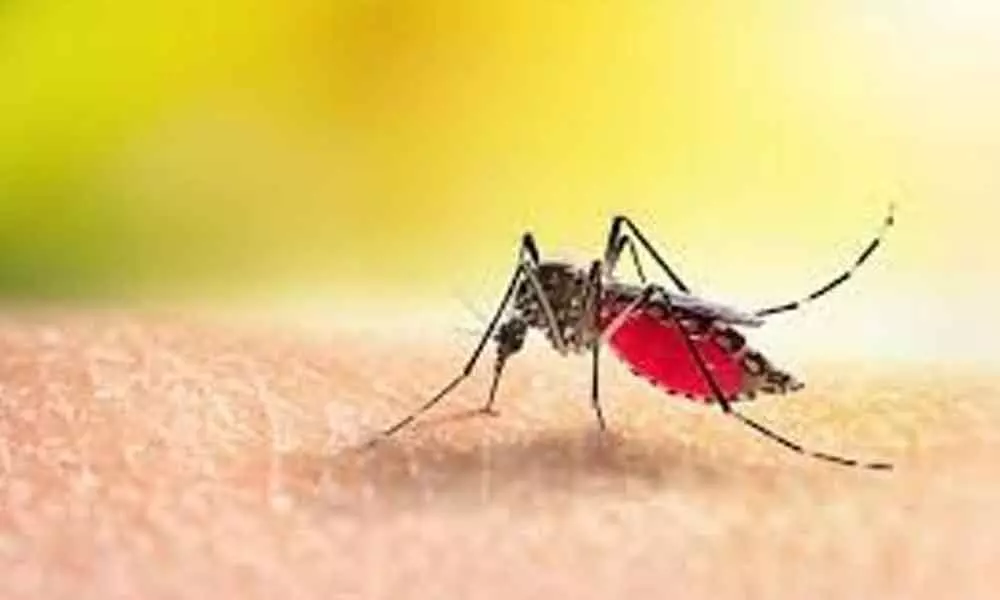New hope to fight malaria

Representational Image
The world’s first malaria vaccine for children developed by Mosquirix, the trade name for RTS/ ASO1 (RTS, S), is the only vaccine now that could save the lives of countless children living in different parts of the world.
The world's first malaria vaccine for children developed by Mosquirix, the trade name for RTS/ ASO1 (RTS, S), is the only vaccine now that could save the lives of countless children living in different parts of the world. The vaccine acts against plasmodium falciparum, the deadliest species that causes malaria in humans
October 6, 2021: On this historic day, the World Health Organization (WHO) recommended the widespread use of the first Malarial vaccine for children against malaria, a life-threatening disease. Kudos to the scientists working at GSK (GlaxoSmithKline) for developing the first vaccine against Malaria after 30 years of research! This was an unprecedented result and a landmark in vaccine technology.
It is a major medical breakthrough in the history of vaccines and a sign of new hope in the global fight against malaria. Malaria is a serious and life-threatening disease that affects people worldwide. Every year, it kills more than 4,00,000 people, most of them children. Malaria is still a major killer of children in African countries. The world's first malaria vaccine for children developed by Mosquirix, the trade name for RTS/ ASO1 (RTS, S), is the only vaccine now that could save the lives of countless children living in different parts of the world.
The vaccine acts against plasmodium falciparum, the deadliest species that causes malaria in humans. Mosquirix(RTS, S) is the first malaria vaccine that received a positive scientific opinion from the European Medicines Agency (EMA) and was endorsed by the World Health Organisation (WHO). The Mosquirix vaccine was developed by British drugmaker GlaxoSmithKline (GSK). Malaria is a serious and fatal disease caused by plasmodium parasites that are transmitted to people through the bite of female Anopheles mosquitoes. It causes severe malaria as it multiplies rapidly in the blood and thus causes severe blood loss (anemia). The illness starts with symptoms such as fever, headaches, and chills and without treatment can progress quickly to severe illness and often death.
In general, malaria is curable if diagnosed and treated promptly and correctly. This dreadful disease posed a challenge for vaccine makers for decades since the disease is caused by a parasite, not a virus or bacteria. Researchers around the world have been working round the clock for decades to develop a fruitful vaccine against this dreadful disease. Ultimately their dream came true with the discovery of a successful vaccine, a powerful tool to destroy the malarial parasite, the deadly Plasmodium falciparum.
RTS, S/AS01, a scientific name given to this malaria vaccine, was first authorised in 2015 by the European Medicines Agency (EMA) for use in Africa in infants and children to provide partial protection against Plasmodium falciparum, the deadliest malarial parasite. It was recommended by WHO for a pilot. The EMA carried out a scientific assessment of RTS, S/AS01, and issued a positive opinion on the vaccine in July 2015. Later in January 2016, the vaccine was recommended by WHO for pilot introduction in the selected areas of 3 African countries.RTS, S has been approved for use in the pilot evaluation and it is being provided to young children through National Immunization programs in parts of three sub -Saharan African countries as part of a pilot introduction that began in 2019.
To date, a total of 2.3million doses have been administered through routine immunization programs. The vaccine resulted in a significant reduction in life-threatening severe malaria. The RTS, S malaria vaccine is the result of 30 years of research and development by GSK (GlaxoSmithKline) and through a partnership with PATH (Program for Appropriate Technology in Health) and with the support from a network of African research centers. The pilot programme is coordinated by WHO. Finally on 6th October 2021 WHO recommended widespread use of the RTS, S malarial vaccine.
India's Bharat Biotech will be producing part of the world's 1st malaria vaccine in partnership with GSK according to the agreement signed between the two. India too would benefit from this major scientific achievement.
Dr Krishna Kumar Vepakomma, Hyderabad
A landmark moment
The invention of malaria vaccine, a first vaccine for any parasitic disease, is a landmark moment in the history of medicine. As the parasite does have complex genetic structure, unlike virus, it easily evades the immune system of human being, causing disease and challenging the effectiveness of preventive medicine. So, the success of efforts for an effective vaccine for deadly malaria has remained elusive for decades. Now the vaccine has been proved effective for some extent and is promising to help in reducing the burden of disease. It will be a major weapon in the armamentarium in the fight against malaria, that is taking away four lakh lives annually from the globe. The WHO and global leaders should help the vaccine to reach the needy people first like sub Saharan Africa.
- Dr DVG Sankararao, Vizianagaram
A medical breakthrough
It is really a matter to rejoice that WHO has given a green signal to the use of MOSQUIRIX (an anti-malarial vaccine) to boost the health of millions of children at risk in Africa. The life-threatening disease malaria kills one child below the age of five every two minutes and each year above 200 million new cases are reported. Next to the brain, the lungs are most affected in severe malaria. This notable approval will go a long way in reinvigorating the fight against malaria especially where it is endemic.
- Dr Sunil Chopra, Ludhiana















